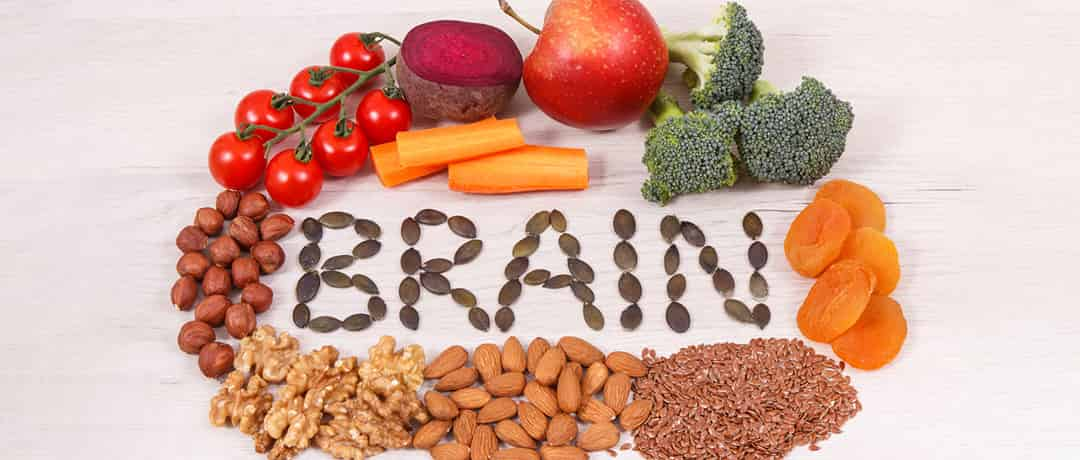The Ultimate Alzheimer’s Diet Guide: Ayurvedic Secrets for Brain Health

Memory holds our stories, our connections, the gentle echo of who we are. When Alzheimer’s begins to shadow those memories, it can feel as though pieces of ourselves are quietly slipping away. Many of us search for ways to protect the mind, to preserve clarity, and to nurture the essence of life that lives in thought and memory. In these quiet moments of seeking, Ayurveda offers a path, an approach that blends wisdom, nourishment, and ritual into a profound ally for brain health.
An Alzheimer’s diet is more than just a set of foods. It is a form of care, a conscious practice that nurtures the mind as gently as a warm hand on the shoulder. Through mindful choices and an Ayurvedic diet for Alzheimer’s, it is possible to strengthen memory, calm the nervous system, and create a sanctuary for cognition, resilience, and emotional balance.
Understanding the Mind Through Ayurveda
The mind, in Ayurveda, is as alive and nuanced as the body itself, intimately tied to three vital energies known as doshas: Vata, Pitta, and Kapha. Each of us carries a unique balance of these doshas, shaping not only our physical constitution but also our emotional patterns, thought processes, and mental clarity.
- Vata, the energy of movement, is light, dry, and ever-changing. It governs creativity, imagination, and the spark of mental agility. A balanced Vata inspires quick thinking and curiosity, while an imbalance may scatter thoughts, make memories feel fleeting, and bring restlessness to the mind. Foods that calm Vata include warm, nourishing meals like oatmeal with ghee, cooked root vegetables, and lightly spiced soups. Herbs like Ashwagandha and Brahmi gently soothe and stabilize Vata’s airy nature, supporting memory retention.
- Pitta, the energy of transformation, is fiery, intense, and sharp. It fuels focus, intellect, and motivation. When balanced, Pitta allows precision and determination; when excessive, it can bring agitation, irritability, and racing thoughts. To balance Pitta for brain health, cooling and calming foods work beautifully like sweet fruits, leafy greens, barley, and coconut. Turmeric and Gotu Kola help regulate Pitta, supporting neuron protection and reducing inflammation in the brain.
- Kapha, the energy of structure and stability, is grounding, nurturing, and slow. It provides mental steadiness, patience, and calm concentration. When Kapha becomes heavy, it can cloud clarity, slow thinking, or foster mental stagnation. Light, warming, and stimulating foods like quinoa, lentils, leafy greens, and ginger that help lift Kapha’s density, while herbs like Brahmi subtly invigorate focus and memory.
Understanding your dosha helps shape a personalized Alzheimer’s diet plan, one that not only nourishes neurons but gently harmonizes your mind. Each bite becomes a mindful act, aligned with your natural energies, reinforcing mental resilience and clarity.
Now that we understand the energies that guide our minds, let us explore how gentle nutrition can support memory.
Foods That Protect Memory and Support Brain Health
In Ayurveda, food is medicine, carrying the power to soothe, energize, and protect. Choosing what we eat becomes an act of love for the mind, especially in the context of Alzheimer’s. By incorporating carefully selected foods, we can support neurons, reduce inflammation, and gently slow cognitive decline, while fostering clarity and emotional balance.
Memory-Boosting Herbs and Spices
Turmeric for Alzheimer’s is golden warmth for the mind, protecting neurons and reducing inflammatory stress quietly and effectively. Ashwagandha calms overactive mental chatter while strengthening recall, creating a sense of ease and steadiness. Brahmi and Gotu Kola provide subtle mental clarity, improving focus and cognitive endurance, nurturing memory like a quiet companion at your side.
Fruits and Vegetables That Nourish the Mind
Berries, abundant in antioxidants, act as guardians of neurons, protecting them from oxidative damage while subtly sharpening memory. Leafy greens and cruciferous vegetables offer minerals, vitamins, and phytonutrients essential for cognitive health. In combination, these brain health foods form the cornerstone of a holistic Alzheimer’s nutrition plan.
Healthy Fats and Omega-3 Sources
Omega-3 fatty acids, present in walnuts, flaxseeds, chia seeds, and fatty fish, support neural communication and flexibility, helping the mind think with fluidity and resilience. They complement Ayurvedic herbs and spices beautifully, creating a balance of nourishment and protection.
Whole Grains and Ayurvedic Cereals
Quinoa, millet, barley, and brown rice provide slow-burning energy, stabilizing blood sugar and sustaining focus throughout the day. For Vata types, warm grains with ghee and mild spices are soothing; for Pitta, cooling grains like barley with leafy vegetables calm heat; for Kapha, lighter grains like quinoa stimulate alertness without heaviness.
Ayurvedic Foods to Improve Memory
Warm milk, ghee, and herbal infusions offer comfort for the body while gently nourishing the mind. These foods illustrate how digestive balance and cognitive clarity are intertwined: when the body is supported, the mind flourishes. For example, golden milk with turmeric supports Pitta, while ghee-based porridges ground Vata, and light herbal teas invigorate Kapha.
A Complete Alzheimer’s Meal Plan for Brain Function
Think of this daily routine as a way to hold your mind gently, nourish your memory, and create calm clarity, not as a rigid list you must finish all at once. Everything here can be adapted for your dosha, so you’re not overwhelmed or confused.
Morning
- Warm water with lemon
We start with something gentle like just warm water with a slice of lemon. This isn’t a strict rule, it’s a soft invitation to awaken your digestive system. Vata types feel a comforting grounding warmth, Pitta types experience a calm, gentle balance, and Kapha types receive just enough light stimulation to get the body moving. You don’t need to drink a full glass if it feels too much then just sip slowly, letting your body wake in its own rhythm. This small ritual prepares your body and mind to receive nourishment, quietly supporting your memory from the very first moment. - Oatmeal with walnuts, chia seeds, and berries
Next comes your morning fuel. Oats give steady energy, walnuts and chia seeds bring omega-3s, and berries provide antioxidants, all vital for neurons and cognitive function. Think of this meal as feeding your mind with gentle, sustaining strength.
● Vata: Oats and nuts anchor scattered energy.
● Pitta: Berries cool and soothe the mind.
● Kapha: Lighter portions of oats with fruit awaken energy without heaviness.
You can adjust toppings daily. No need to eat everything every day. The goal is nourishment, not rigidity. - Golden milk with turmeric and cardamom
A small cup of golden milk is like a warm hug for your nervous system. Turmeric protects neurons and reduces inflammation, while cardamom soothes digestion. Sip it slowly. Vata, Pitta, and Kapha all find comfort here. This is not just a drink, it’s a ritual of memory care, a moment of calm before your day begins.
Mid-Morning
- Herbal tea infused with Brahmi or Gotu Kola
Around mid-morning, we invite clarity and calm. Brahmi enhances focus and memory, while Gotu Kola gently supports mental resilience. You don’t need both. Choose one according to taste or availability. Steep in hot water like a comforting tea, sip slowly, and let the mind settle. All doshas can enjoy this herb in moderation. - A small fruit or handful of nuts
This is your brain snack, bringing vitamins, healthy fats, and a little natural sweetness. Vata feels grounded, Pitta feels cooled, and Kapha feels lightened. Choose what feels best for you, a crisp apple, a few almonds, or a small bunch of grapes. The exact choice is flexible.
Lunch
- Quinoa or millet with seasonal vegetables sautéed in ghee
Lunch is your main act of nourishment, supporting both body and memory. Quinoa or millet provides protein and slow energy; seasonal vegetables supply antioxidants and vitamins; ghee help digestion. - Vata: Include root vegetables for grounding.
- Pitta: Opt for cooling greens to calm the mind.
- Kapha: Use lighter grains and less ghee to avoid heaviness.
- Lentil soup with cumin and coriander
A warm lentil soup supports digestion, reduces inflammation, and nourishes neurons. These gentle spices make the meal easy to digest for all doshas. This is food that truly cares for your memory and your body, a soothing rhythm in the middle of your day.
Afternoon
- Fresh vegetable juice or smoothie with spinach, beetroot, and flaxseed
In the afternoon, the mind may feel heavy or distracted. This refreshing, nutrient-packed drink wakes your neurons gently. Spinach calms Pitta, beetroot lightly energizes Kapha, and flaxseed oils anchor Vata. Drink slowly, noticing the subtle alertness returning to your thoughts. - Herbal tea with Ashwagandha
Ashwagandha is a gentle companion for memory and calm. It reduces anxiety, enhances recall, and balances energy. One cup is enough. For Vata, it soothes scattered thoughts; for Pitta, it cools excess heat; for Kapha, it gently energizes without heaviness.
Evening
- Light soup with whole-grain chapati
Evening is a time to prepare the body and mind for rest. A light soup paired with whole-grain chapati is easy to digest, provides steady energy, and supports the consolidation of memories from the day. - Warm milk with a pinch of turmeric
Before bed, sip a warm cup of milk with turmeric. This promotes restorative sleep, neural protection, and calm reflection. Each dosha experiences comfort: Vata is grounded, Pitta is cooled, Kapha is lightly soothed. This is a loving closure to your day, nourishing neurons while encouraging deep, calm sleep.
Why This Works
Every element like water, herbs, grains, nuts, spices are chosen to support neurons, enhance memory, reduce inflammation, and create mental clarity. Adaptation to your dosha ensures that you feel balanced, nourished, and safe with every sip and bite.
Holistic Alzheimer’s Care Beyond Food
Alzheimer’s nutrition is essential, yet it is only one piece of a broader, holistic approach. Integrating yoga and diet for Alzheimer’s, quality sleep, emotional support, and stress management creates a foundation for lasting cognitive wellness. Each mindful choice, each thoughtful meal, each nurturing ritual strengthens the mind and fosters resilience, illustrating the profound reach of Ayurvedic brain health.
Natural remedies for Alzheimer’s, like anti-inflammatory foods for the brain, memory-boosting herbs, and omega-3-rich ingredients, work in harmony with lifestyle practices. Together, they form a tapestry of care that gently supports memory, focus, and emotional balance.
Slowing Alzheimer’s Naturally Through Choice
Through Ayurveda, the mind becomes a garden, cultivated with care. The Alzheimer’s diet plan is not just a guide. It is a pathway to hope, resilience, and balance. And we understand that each mind, each body, and each life story is unique.
If you feel unsure about which foods, herbs, or daily rhythms suit you best, or if you want to discover your dosha type to create a truly personalized Alzheimer’s meal plan, our team at ASHAexperience is here to walk with you, speak with us now. Together, we can explore the approach that fits your body, your mind, and your lifestyle, helping you feel supported and confident in every choice you make.
If you seek deeper guidance and a more immersive experience, our retreats offer a gentle, heart-centered way to embody these practices. Nourishing meals, mindful routines, and personalized Ayurvedic guidance come alive, allowing you to truly embody these practices and weave them gently into your daily life. You will leave with a clearer mind, a more balanced energy, and a lighter heart, carrying the confidence and ease to continue nurturing yourself at home.
At ASHAexperience, every choice—whether a meal, a herb, a mindful pause, or a guided practice—is a step toward cognitive clarity, emotional balance, and holistic brain health. Ayurveda reminds us that the mind deserves care, rituals, and nourishment that honor its depth, resilience, and beauty. Let us walk this path with you gently, heartfully, and with presence.
We believe in collaborative relationship-based care where our Ayurvedic Doctors, Ayurvedic Practitioner, Ayurvedic Supplement Brands, Ayurvedic Nutritionists & Chefs, Yoga, and Meditation Trainers are in sync. Contact the team who passionately works together to hold your hand in this healing journey.
